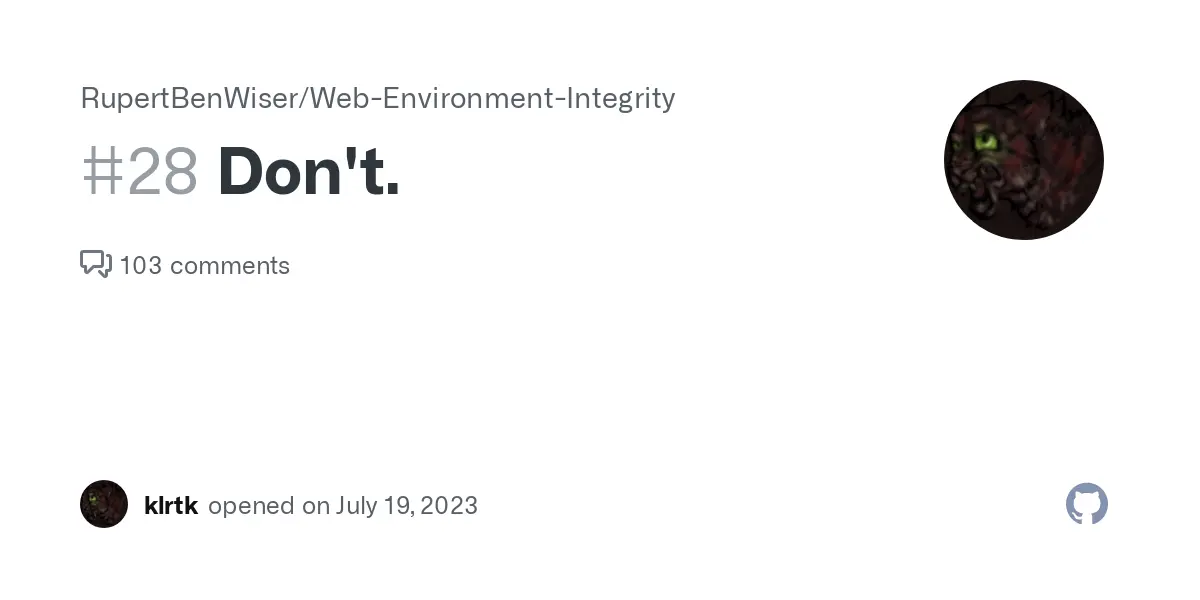Can someone explain what this does using only two words?
google extortion
more ads
surveillance capitalism
See also: Web Environment Integrity API Proposal | Hacker News
TLDR?
I don’t like pinko terms like surveillance capitalism. it implies that mass surveillance is somehow worse when it’s private firms doing it, and that the solution is to do away with private firms. as if socialism ever saved anyone from mass surveillance. this is complete nonsense.
Any privacy-invading surveillance is of course bad, capitalistic or not. The word “capitalism” was probably used casually, and not because the quoted commenter is a communist.
In this case, what Google wants to do is making sure that everyone sees personalized ads. If possible, they want to “ban” ad blockers or force DRM. Why? Maybe because that is their business model.
So the answer to “What’s the nature of the proposed system?” is “for ads” “for monetizing” “for profit” “Google-centric” “capitalistic” “monopolistic” “money is more important for them than privacy” etc. While this is disturbing, it’s not implied that privacy invasion is okay if not capitalistic. On the contrary, using monopoly power for profit is relatively better than mass surveillance by an oppressive government, which may arrest you or kill you just because you criticize them. Google is unlikely to kill you even if you use ddg or metager. Then again, it’d be weird to say, “This proposal is not evil, because there will be a worse kind of surveillance.”
Apple already shipped attestation on the web, and we barely noticed
There’s been a lot of concern recently about the Web Environment Integrity proposal, developed by a selection of authors from Google, and apparently being prototyped in Chromium.
There’s good reason for anger here (though I’m not sure yelling at people on GitHub is necessarily the best outlet). This proposal amounts to attestation on the web, limiting access to features or entire sites based on whether the client is approved by a trusted issuer. In practice, that will mean Apple, Microsoft & Google.



